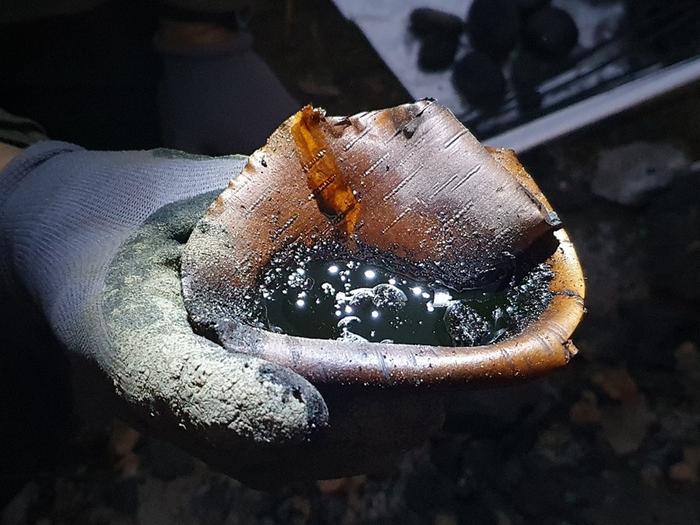Coming up with it is one thing, but finding a way to scale it is more challenging.
To get answers, scholars used Petri net models to try and infer what kinds of cognition were required for the materials. The findings suggest Neanderthals probably relied on several cognitive traits that archaeologists often associate with modern thinking and behavior. “Neanderthals used, at least on some occasions, a complex production process to make tar," says Dr. Sebastian Fajardo, who led the study. "To do that they needed ways to deal with a lot of information, like understanding and a way to transmit information very well.”

Birch bark tar vessel containing hot tar from a recently completed experiment using the ‘raised structure’ technique. Photo credit: Geeske Langejans
The study doesn't prove they used a particular method for creating the tar, it instead looked at how scaling up a technological process affects its complexity. In this case, scaling has a significant impact on the complexity, which suggests people had a way to deal with this complex upscaling, like inventing a way for working together, as Henry Ford did with the assembly line, and more communication.




Comments